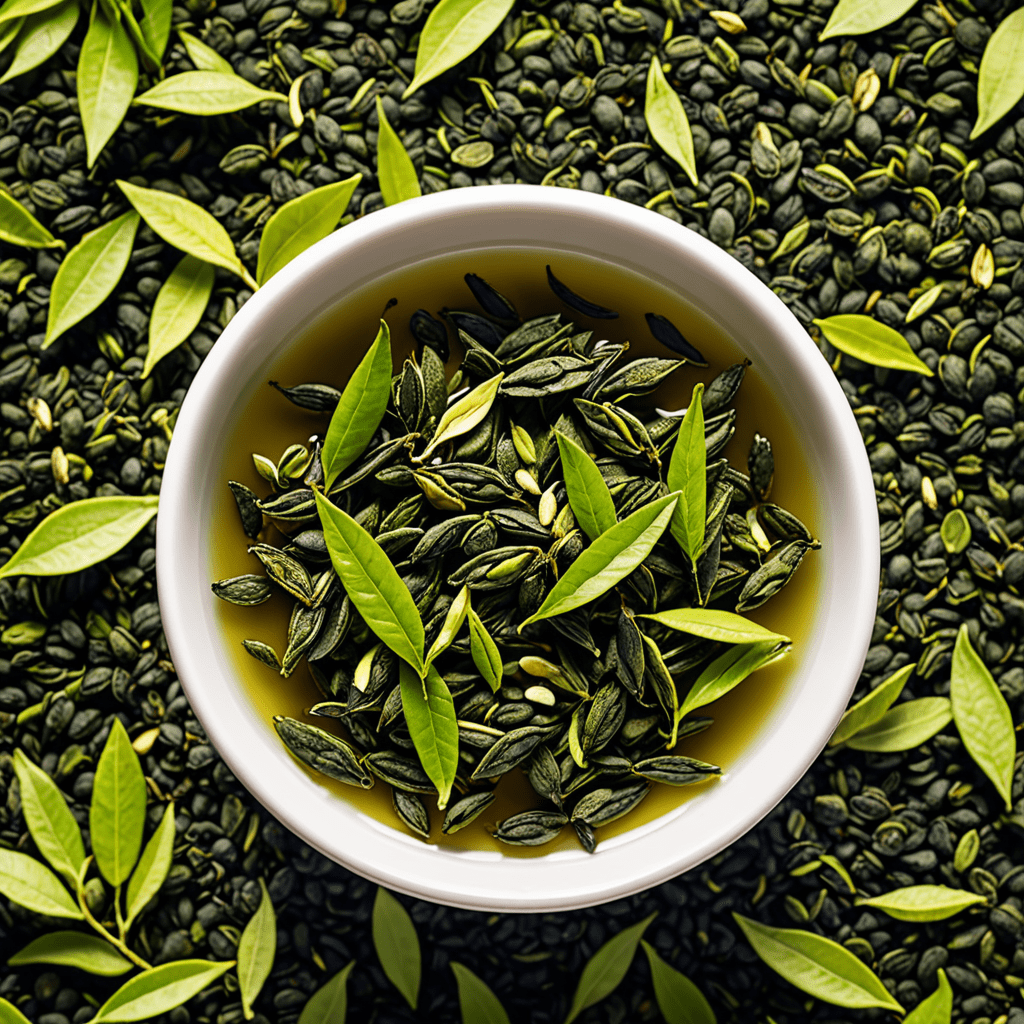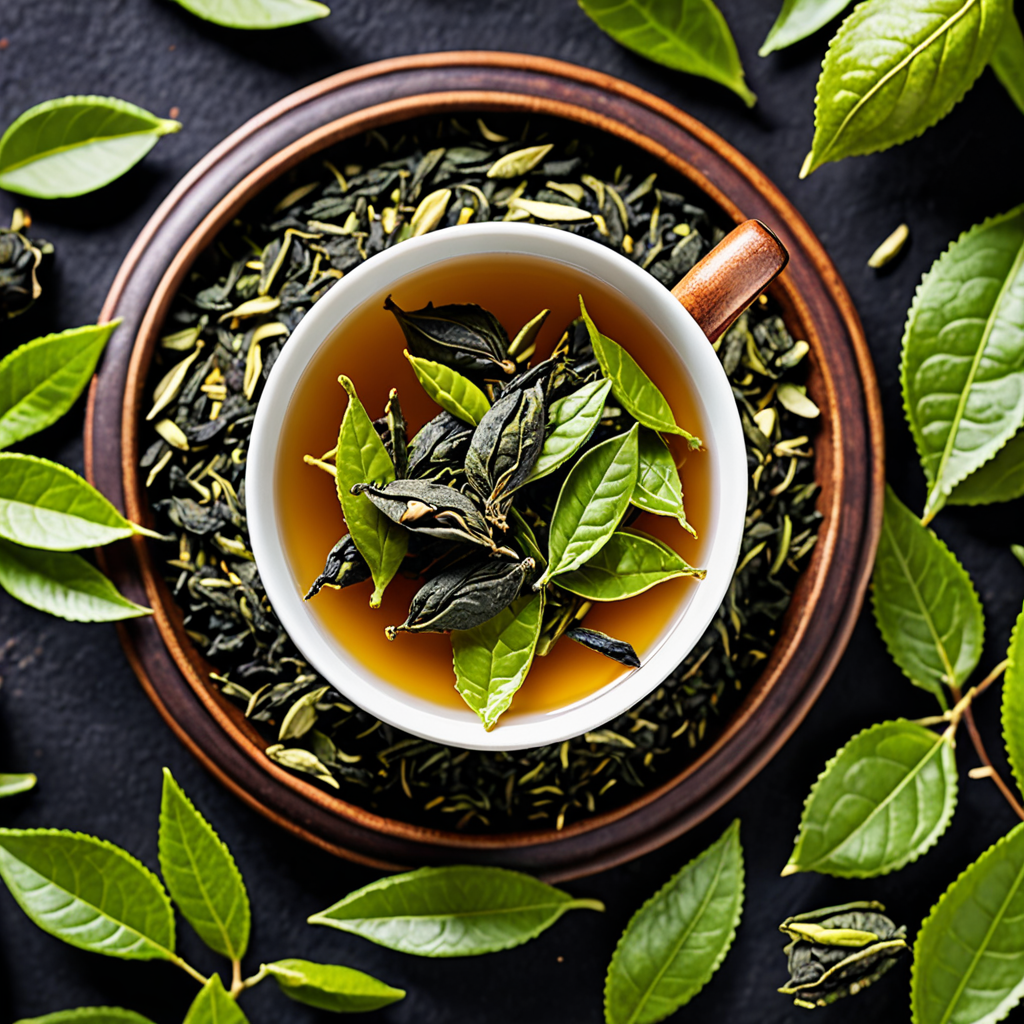
When is the Best Time to Drink Green Tea?
Green tea is a popular beverage known for its numerous health benefits. From boosting metabolism to improving brain function, green tea has become a staple in many people’s daily routine. However, one question that often arises is: when is the best time to drink green tea? In this article, we will explore the different times of day and situations where drinking green tea can be most beneficial.
Morning: A Fresh Start with Green Tea
Starting your day with a cup of green tea can provide a refreshing and energizing kickstart. Green tea contains caffeine, although in lesser amounts compared to coffee, which can help to wake you up and increase alertness. The combination of caffeine and other compounds found in green tea can provide a gentle and sustained boost of energy throughout the morning.
Furthermore, green tea is known for its high antioxidant content. Consuming green tea in the morning allows your body to kickstart its antioxidant defense system and protect your cells from oxidative damage, setting a positive tone for the rest of the day.
Mid-Morning: A Natural Pick-Me-Up
By mid-morning, you might start feeling a bit sluggish or in need of a mental boost. This is where green tea can come to the rescue. The stimulating effects of green tea’s caffeine can help increase focus, concentration, and productivity. Instead of reaching for another cup of coffee, opt for a cup of green tea to keep your energy levels steady and combat the mid-morning slump.
Afternoon: Revitalizing with Green Tea
As the day progresses, it’s common to experience a decrease in energy and concentration. This is often the perfect time to have a cup of green tea. Green tea contains an amino acid called L-theanine, which has been found to promote a state of relaxation and calmness without causing drowsiness. Combining the L-theanine with the small amount of caffeine found in green tea can help to improve focus and mental alertness without the jitters commonly associated with coffee.
Moreover, green tea has been shown to aid digestion and promote a healthy gut. Having a cup of green tea after lunch can not only refresh your senses but also support overall digestion and promote a feeling of wellness.
Evening: Unwind and Relax
While green tea can be enjoyed throughout the day, it’s important to consider its caffeine content in the evening. The caffeine found in green tea can interfere with sleep quality and quantity, thereby potentially disrupting your sleep cycle. If you are sensitive to caffeine or have trouble sleeping, it is recommended to avoid consuming green tea in the evening or at least a few hours before bedtime.
However, if you still crave a cup of green tea in the evening, you can opt for decaffeinated green tea. Decaffeinated green tea provides similar health benefits without the stimulating effects of caffeine. Alternatively, you can choose herbal tea options such as chamomile or peppermint, which are naturally caffeine-free and known for their relaxing properties.
Pre and Post-Workout: Enhancing Performance and Recovery
Green tea can also be a great addition to your pre and post-workout routine. The combination of caffeine and antioxidants in green tea has been shown to enhance physical performance and aid in exercise recovery. Consuming green tea before your workout can help increase endurance, focus, and fat-burning potential. Additionally, drinking green tea after a workout can aid in reducing muscle soreness and inflammation.
Frequently Asked Questions (FAQ)
Can I drink green tea on an empty stomach?
Yes, you can drink green tea on an empty stomach. In fact, drinking green tea on an empty stomach can help kickstart your metabolism and aid digestion. However, some people may experience stomach discomfort or nausea when consuming green tea without any food. If you are new to drinking green tea or have a sensitive stomach, it’s best to have it with a light meal or snack.
How many cups of green tea should I drink per day?
The recommended daily intake of green tea varies, but it is generally safe to consume 2-3 cups of green tea per day. It’s important to note that excessive consumption of green tea can lead to side effects such as caffeine jitters, insomnia, and digestive issues. Additionally, if you have any pre-existing health conditions or are taking medication, it’s always best to consult with your healthcare provider to determine the appropriate amount of green tea for your specific situation.
Can I drink green tea before bedtime?
It is not recommended to drink green tea right before bedtime due to its caffeine content. Caffeine can interfere with sleep and disrupt your sleep cycle, leading to difficulty falling asleep or staying asleep. If you still want to enjoy a cup of green tea in the evening, opt for decaffeinated green tea or herbal tea options that do not contain caffeine.
Can I drink green tea during pregnancy?
While green tea is generally considered safe for consumption during pregnancy, it’s best to limit your intake to moderate amounts. High levels of caffeine have been linked to an increased risk of miscarriage and other complications during pregnancy. Therefore, it is advisable to consult with your healthcare provider to determine the appropriate amount of green tea for you during pregnancy.
Can green tea help with weight loss?
Green tea has been associated with weight loss due to its potential to boost metabolism and aid in fat oxidation. The catechins and caffeine found in green tea have been shown to have a thermogenic effect, which can increase calorie expenditure and fat burning. However, it’s important to note that green tea alone is not a magic weight loss solution. To achieve weight loss goals, it’s essential to maintain a balanced diet, engage in regular physical activity, and adopt healthy lifestyle habits.
Can I add sweeteners or milk to green tea?
Green tea is often enjoyed without any additives, as it has a natural and refreshing taste. However, if you prefer a slightly sweeter flavor, you can add a small amount of natural sweeteners like honey or stevia. Adding milk to green tea is less common but can be done if desired. Keep in mind that milk may alter the taste and potential health benefits of green tea, so it’s best to experiment and find the combination that suits your personal preferences.


